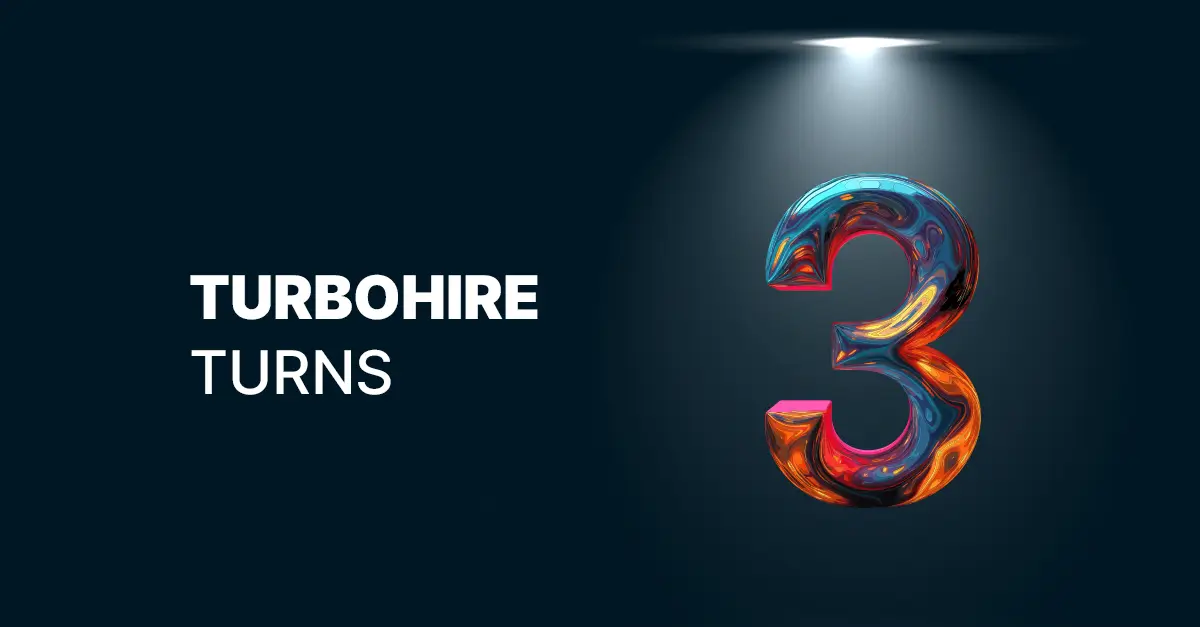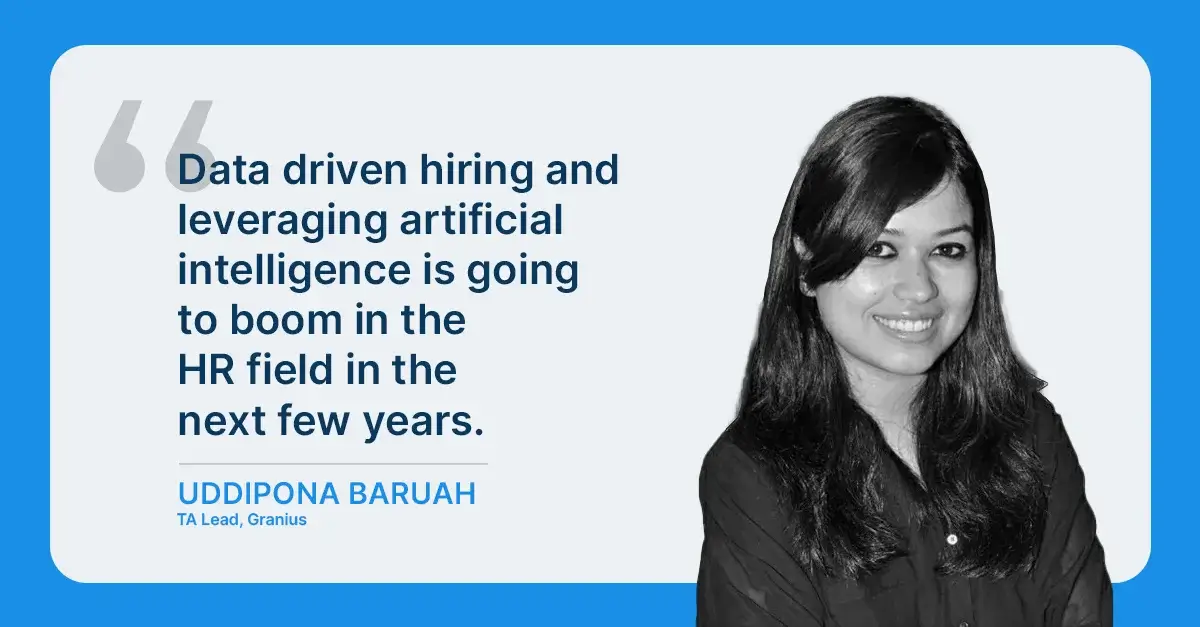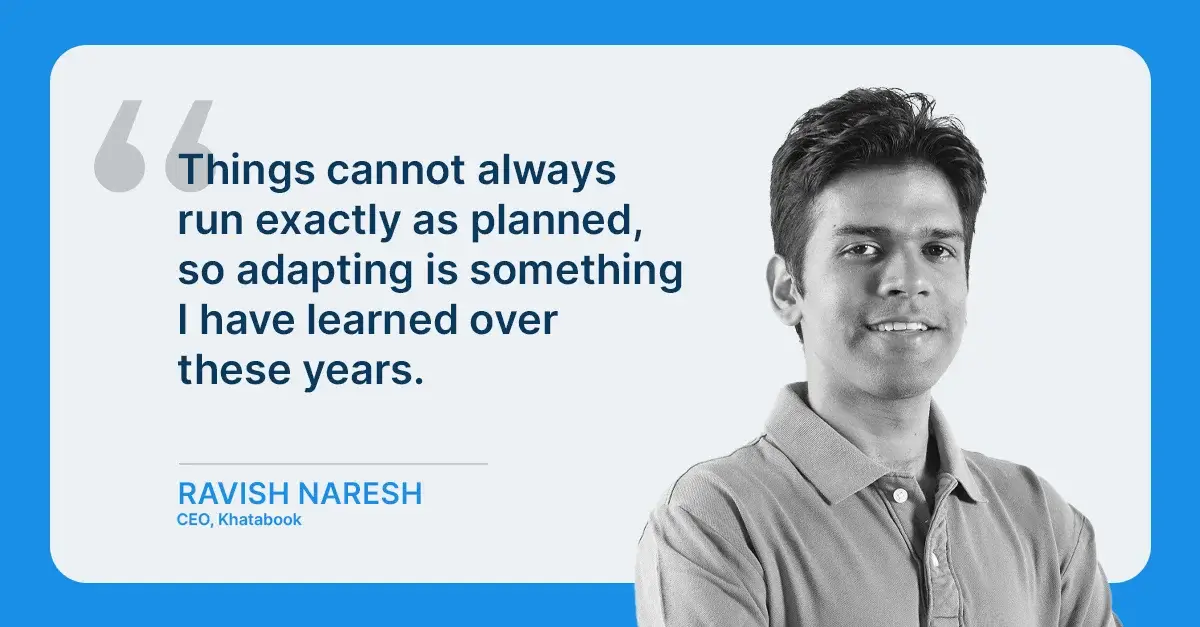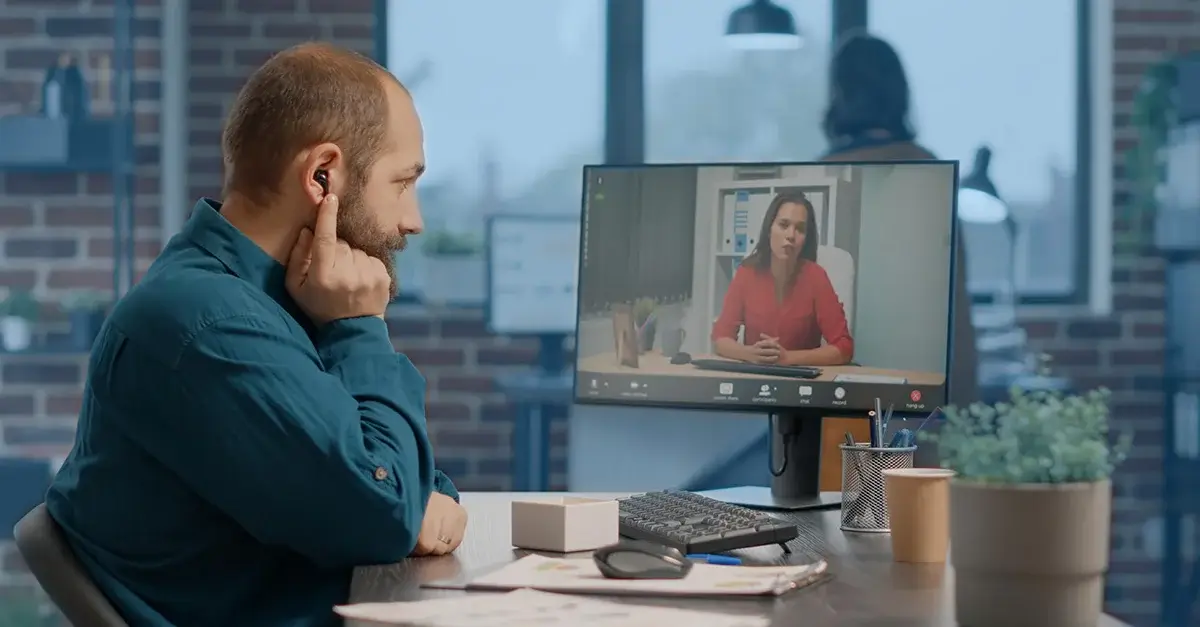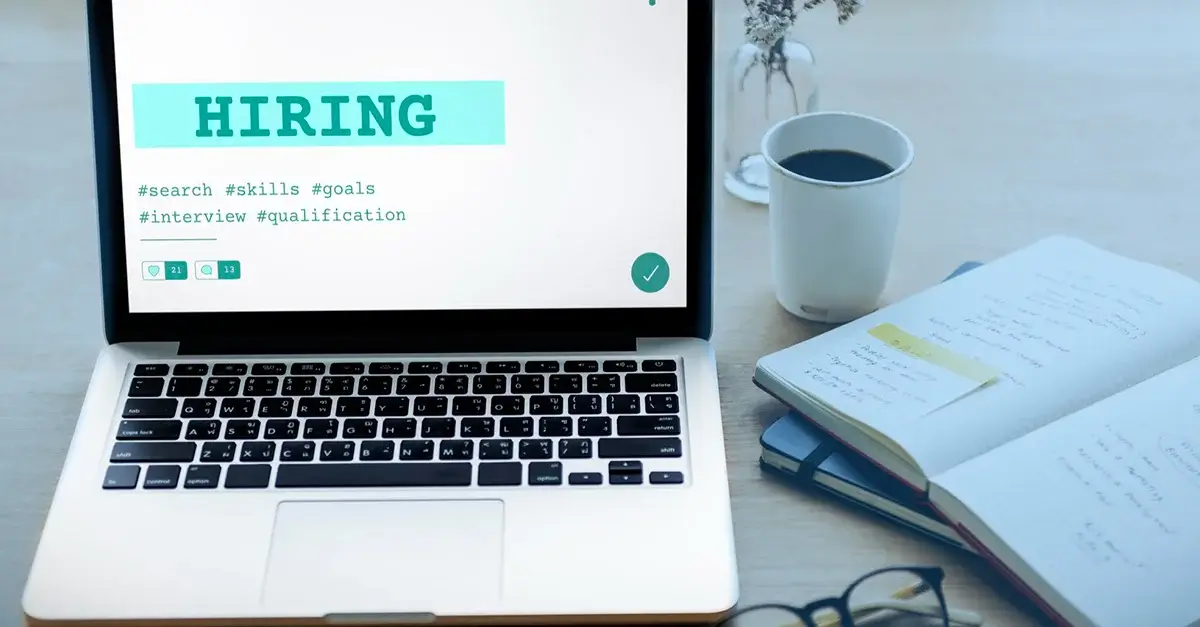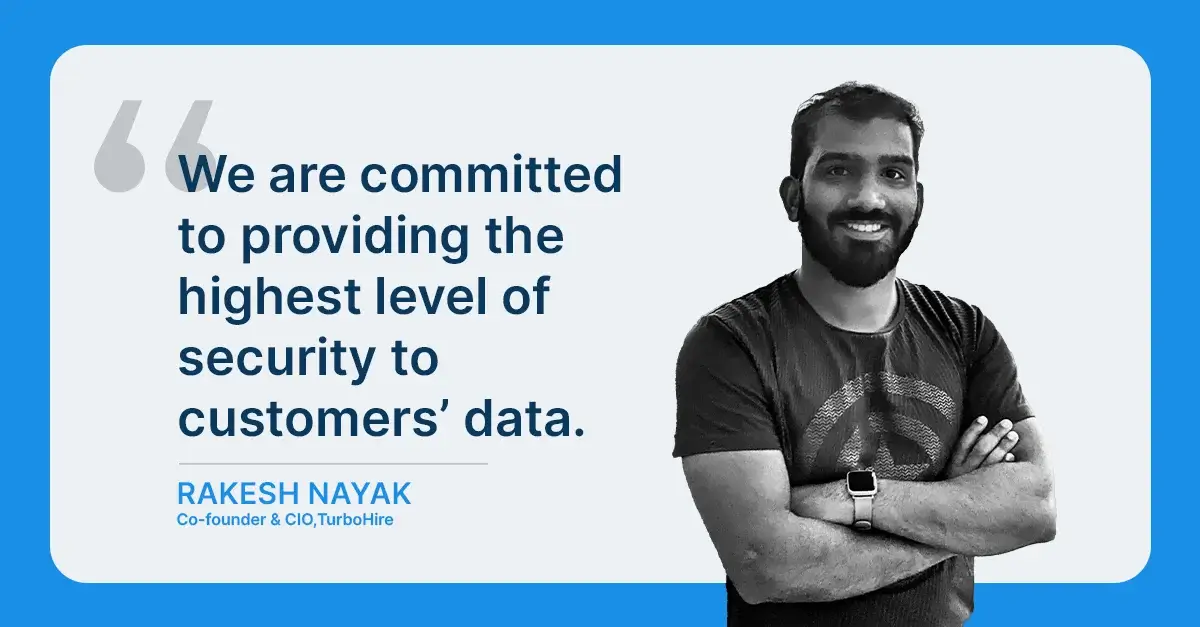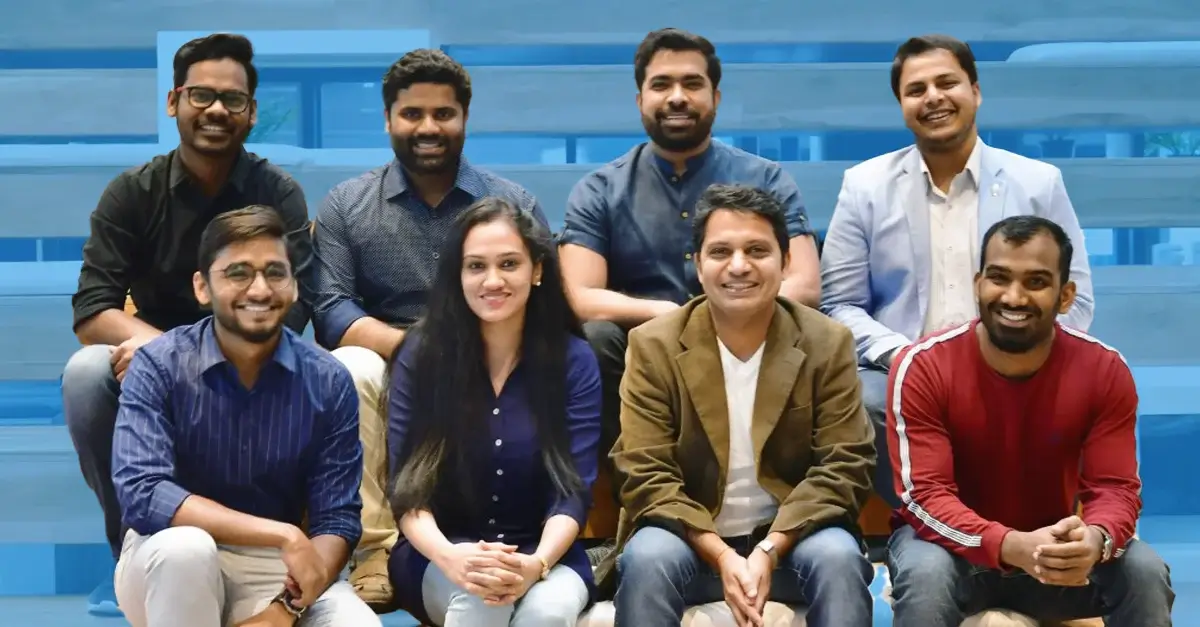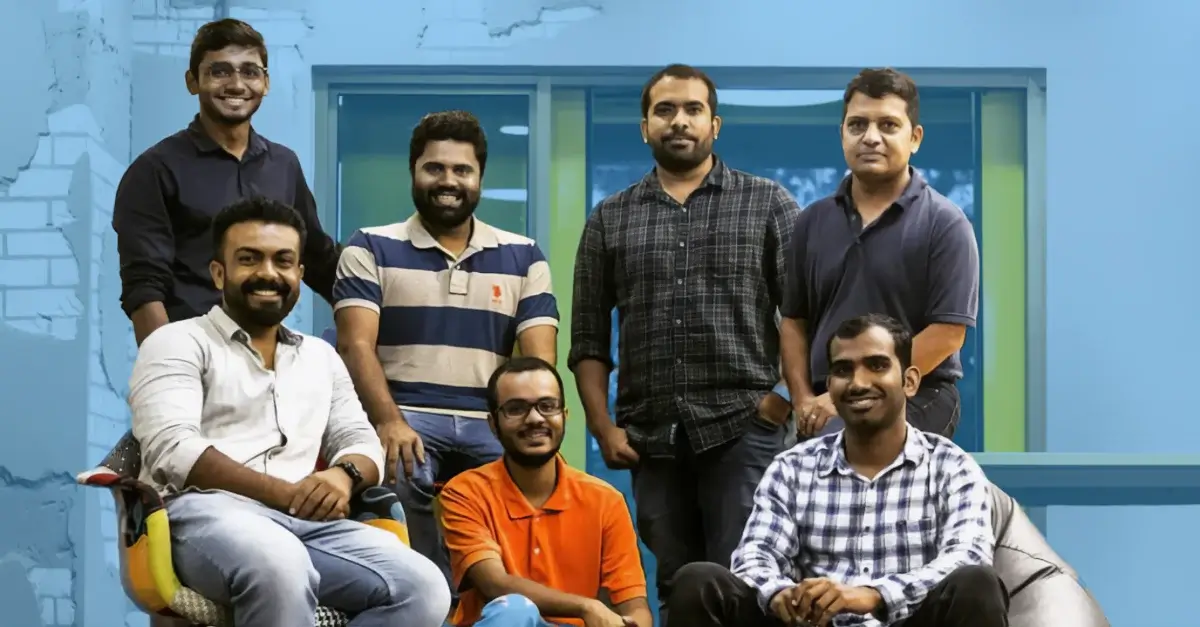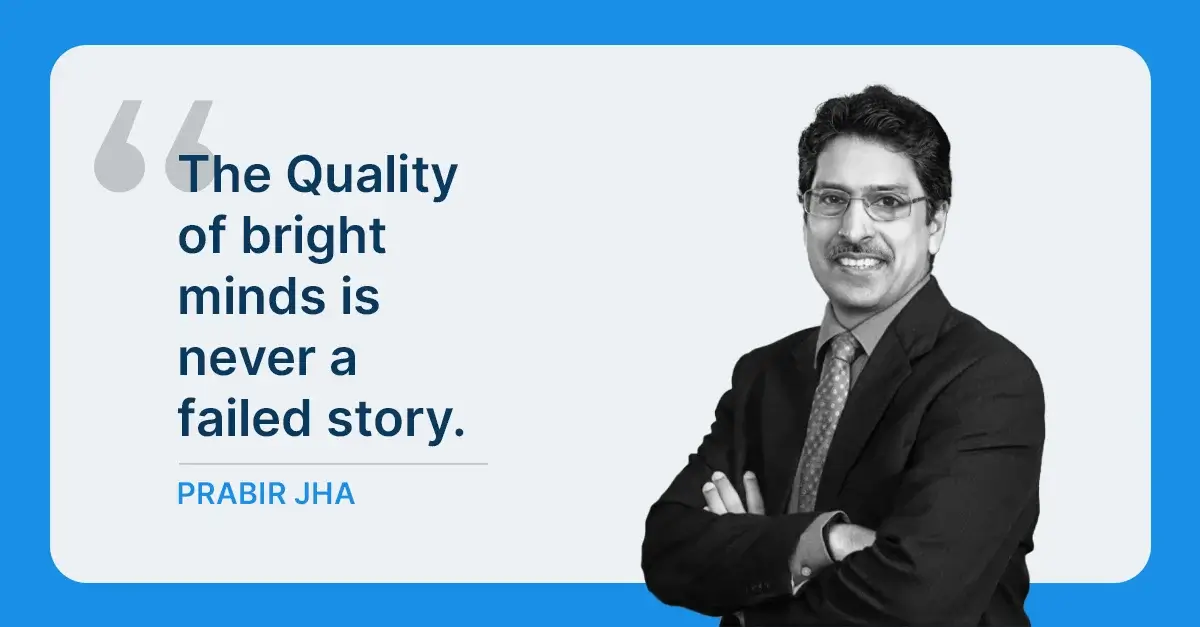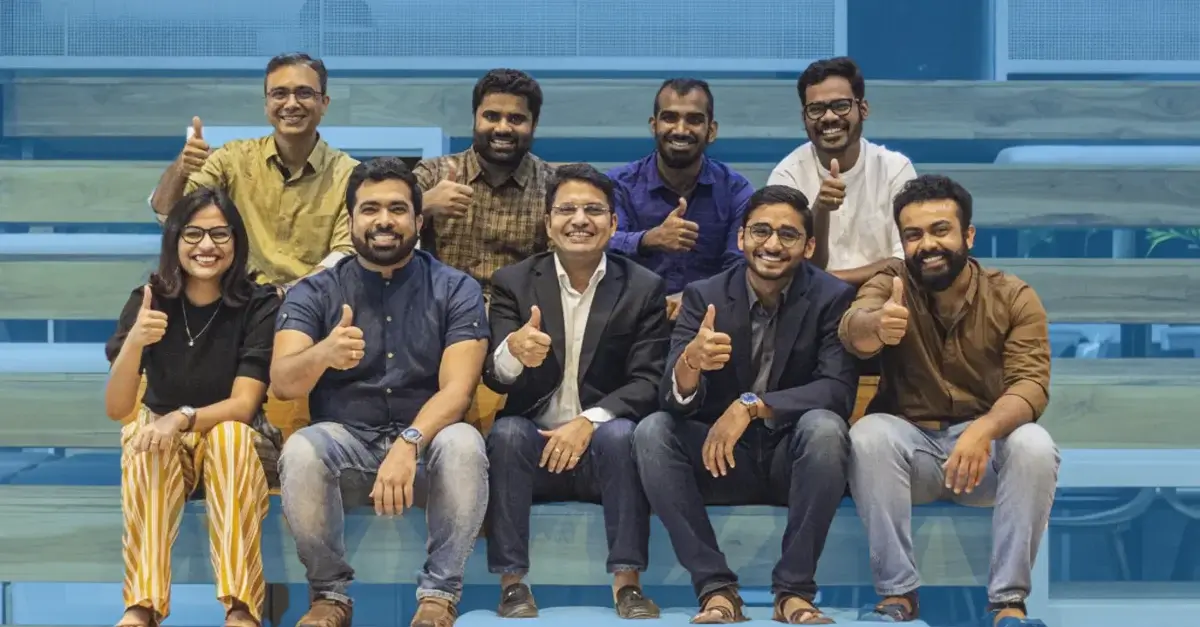TurboHire in the rear view mirror by Aman Hour
Aman Gour, Cofounder, and Chief Product and Strategic Officer at TurboHire, harks back to the journey that shaped TurboHire, that is today – the world’s leading talent intelligence software. He is currently driving product, strategy, and partnerships in the company. Along with a very capable team, Aman is on the journey to enable better and faster talent decisions at enterprises. Aman has been an ex-employee at Microsoft driving the Product at Microsoft Community Training. He has also contributed also a Visiting Research Scholar at TU Braunschweig. He is a meritorious graduate in Computer Science from IIT Bombay.
This article has been written by Aman, in context to one of his recent interviews with Entrepreneur Lounge of India. Let’s read what Aman has to pen down…
Ray Dalio, in his book “Principles”, gave all of us this simple yet insanely effective formula that talks about the importance of not just working hard but also balancing it with reflection. This formula became the cornerstone of the culture of TurboHire. We aren’t just maniacal about where we spend time but precisely spend time each week on the progress made on personal and professional goals.
As a part of the reflection of building TurboHire in the last 3 years, we went down memory lane to collect some of the important lessons and what follows is a condensed version of lessons learned and mistakes made.
By no means this is a blueprint of how-to-build-a-start-up but an honest portrayal of our journey. It might help build perspective or just simply avoid a few mistakes.
There is a joke floating around the internet – “Every software engineer that wants to change the world starts an HR Tech company”. The jokes fit into the story of how TurboHire got started.
Rakesh Nayak and I were not so happy with our first team allocation at Microsoft and so we started building an algorithm for talent-matching. We built an engine for predicting the likelihood of an employee leaving the organization in the next 3 months. It was a fun project but exposed us to the vast array of possibilities that lies in the domain of HR Intelligence.
Just next door at ISB, Deepak Agrawal was working with Abhishek Kabra and Gaurav Kumar on the idea of converting unstructured resume data into structured form. When Deepak reached out over LinkedIn, it felt like a match made to happen and we joined hands. This formed the founding team of TurboHire. It was part hard work but part happy luck.
We got started with understanding the market landscape. Deepak’s experience with helping students of ISB find better jobs came in handy and we started building a talent discovery tool.
While I am able to position the talent discovery tool while looking backward, at that time, we didn’t know what we were building as clearly as that.
Given that resumes were written in an unstructured format, we started with solving the hard problem of converting unstructured data into structured profiles. This over time became a deep-tech differentiation of TurboHire
Initially, TurboHire was a side project for all of us, where we used to sync twice a week and work over the weekend. But as it started to take shape we decided that its time to venture into the unknown.
In most of the startup stories, people glorify founders taking risks but I personally feel that having a head-start helps. Either it’s with the due diligence of the market or building a basic product.
When we all left our jobs and regrouped thinking that the world is ours to be dominated. In 3 months we will get funding and in the next 6 months, we will hit the $1m ARR mark. Surprisingly, that didn’t happen.
We found our initial customers in GCIT (Fahad Mistry), Monocept (Vishak Bharadwaj), Vitasta (Pradeep Dhar). These gentlemen didn’t buy the product for what it could do at that point but its future possibility. They became not just early adopters of the platform but also the well-wishers and guiding lights.
Fahad Mistry has joined TurboHire full time to take his conviction in TurboHire to more people globally. While Vishak Bharadwaj and Pradeep Dhar continue to guide us as Product Advisors.
At this stage, the monetization approach of TurboHire was not clear. We experimented with multiple pricing options from pay-as-you-go, which our customers loved to monthly subscriptions, which built predictable sales momentum. The challenge was to hit a price-market fit while keeping a premium positioning of TurboHire.
With initial few customers and validation of the product, we started looking for investment. Our first investment was an angel investment by Prashant Gupta. He believed in the team, product, and leadership of Deepak. Earlier when I was leaving Microsoft, in my exit interview, Prashant promised that he would invest in TurboHire if we had 15 paying customers. We lived up to the words and he invested.
Post this we started looking for VC investment to grow revenue and the team. After an initial few roadblocks and a lot of trips to Bangalore (and “bissibella bath” at the Bangalore airport, it’s actually amazing), we ended up meeting alacrity venture partners which later became Pentathlon Ventures. PVC showed interest in participating in the round. But having a fund of entrepreneurs backing us was a big boost to us.
One big mistake we made was to reach out to our ideal VC first. It was not a surprise that we bombed those discussions as we were still perfecting the pitch. The lesson here would be to focus on a lot of mock conversations before you start your fundraising roadshows.
And then we thought, everything is going well, the world was put to a halt by COVID, we all started working from home and making the transition. There was a lot of sentiment-driven decision-making, and all the major companies had put the hiring on hold. The revenue we built brick by brick dropped by almost 60%.
We launched an initiative Talent Network to help job-seekers who were let go get connected with companies that were seeing exponential growth in demand. The initiative was successful and added an additional run-way of 3 months to TurboHire.
As entrepreneurs, we are focused on our primary product but it’s often possible to discover multiple secondary use-cases that could light up with crafty use of the existing product.
Three months passed quickly. In June 2020 we had only enough cash to survive for 1 more month. That was the closest, TurboHire has come to shut shop. We had a decision to make at that point to let go of some members of the team or to scout for angel investment. That’s when we raised our second round of angel investment by PV and Prabir. They were god-sent.
With the confidence of industry stalwarts in TurboHire, PVC confirmed their round participation. At this point, while the Team TurboHire was strong on paper, we were yet to generate a lot of traction. Still, PVC showed faith in TurboHire Team and Technology powering it. How it will go down in history, that time will tell.
We raised a million dollars in funding with investors who so far have been the best we could ask for.
By this time the markets have started to open up and the Sales engine of TurboHire supported by inbound lead generation started showing positive signs. During the covid times, we spent efforts in improving the value proposition of TurboHire which made TurboHire win over the competition in the market.
In the next 4 months, we set up the required engines of growth, quadrupled the revenue, and also set up a base in the US for global growth. When we thought that everything was going to be rainbows and sunshine, we heard the knock of the second wave on the door.
This time we were prepared. While companies did freeze hiring, we utilized our lead generation engine to build a long-term pipeline. What was extremely interesting is how we reacted to the market. During the 2 months of the COVID wave:
- The marketing team became a positive media engine – when the social media feeds were full of negative information. We focused on sharing educational content on how the world is dealing with the second wave.
- The sales team focused on calling customers not to sell but to enquire about their well-being. They served as a pair of listening ears when anyone wanted to talk.
- The R&D team put its roadmap on the side and focused on the well-being of the people.
The second wave did pass and we got back on a growth trajectory. Everyone is fired up today in TurboHire to do their best. We onboarded many people during COVID who haven’t met personally, but we feel like a team on a mission. We might not see the full picture every day but TurboHire is a beautiful story in making.
All the major learning can be summarized in an aphorism: For me, entrepreneurship has been a multiplayer video game. Multi-player
- Everyone is very limited and we need a tribe to build a lasting company.
- Each of us is the owner in our own vertical, and when such ownership is taken by everyone, things start working.
- Conflicts are good as they push us in the right direction.
Video-game
- You often don’t know what’s about to hit you.
- Focus on iterations over pivots, refine your understanding & approach continuously.
- Just like in video games, there are multiple levels: Find an idea, Understand users, Build a Product, Understand the business, Generate long-term performance.
You can also read TurboHire’s collaboration with Pentathlon Ventures – a quick Q&A with Aman Gour

